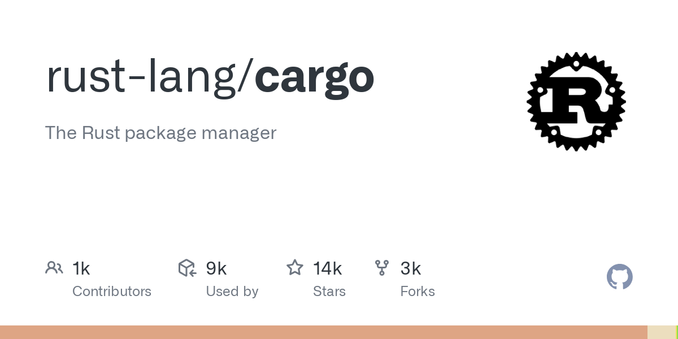- -Z script
- AFAIK
cargo adddoesn’t work with -Z script files - need to specify
fn main()->Resultin order to get?in main (and writing the error type requires at least one import) - Ok(()) wrapping everywhere
- clap’s api requires a lot more boilerplate for “trivially small” parsers than argparse so i will often just do things with std::env::args myself (this is probably telling on myself that i use bash too often lol)
- everything is so so so verbose. BTreeMap doesn’t even support [] syntax for inserting. inherent methods can’t be renamed on import (and writing wrapper functions requires tons of type-level boilerplate). doing things the “right way” with BufRead.lines() is a lot more annoying than just using read_to_string.
- refactoring anything type-related is tedious because the generics on all the
implblocks need to be updated - various rustfmt gripes that i don’t have about gofmt
@brk @jyn @ekuber Thats exactly what it does. For example, see https://github.com/rust-lang/cargo/tree/master/tests/testsuite/cargo_add/script_bare

